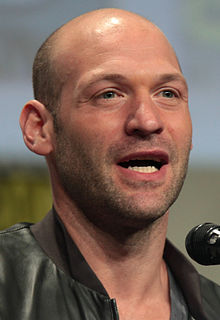A Quote by Frank Lloyd Wright
To know what to leave out and what to put in; just where and just how, ah, that is to have been educated in knowledge of simplicity.
Related Quotes
When we are truly in this interior simplicity our whole appearance is franker, more natural. This true simplicity. . . makes us conscious of a certain openness, gentleness, innocence, gaiety, and serenity. O, how amiable this simplicity is! Who will give it to me? I leave all for this. It is the pearl of the Gospel.
If you're a poet, you do something beautiful. I mean, you're supposed to leave something beautiful after you get off the page and everything. The ones you're talking about don't leave a single, solitary thing beautiful. All that maybe the slightly better ones do is sort of get inside your head and leave something there, but just because they do, just because they know how to leave something, it doesn't have to be a poem for heaven's sake. It may just be some kind of terribly fascinating, syntaxy droppings--excuse the expression. Like Manlius and Esposito and all those poor men.
Just been talking today out here to all the Senators investigating these stock swindles and overcapitalizations. There has been hundreds of millions lost. There ought to be some form of guardianship for people that buy all this junk. Education won't do it. The buyers are the ones we have educated up till they are just smart enough to fall for everything that comes along.
It is this simplicity that makes the uneducated more effective than the educated when addressing popular audiences-makes them, as the poets tell us, 'charm the crowd's ears more finely.' Educated men lay down broad general principles; uneducated men argue from common knowledge and draw obvious conclusions.
One of the goals of scientific theorising is to develop concepts which are adequate to the phenomena under study. In my view, things should work the same way in epistemology. We want to know what knowledge actually amounts to, not what our folk concept of knowledge is, since, just as with our pretheoretical concept of acidity, it might contain all sorts of misunderstandings and leave out all manner of important things.








































